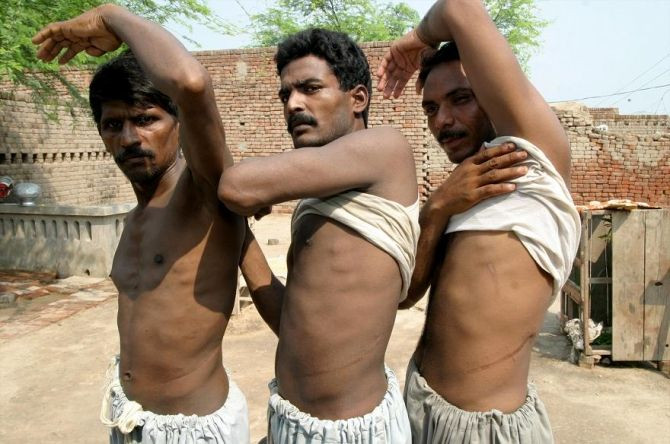Growing Organ Market Targets Desperate Poor, Sells Kidneys, Livers, and Corneas

Impoverished people in developing countries are increasingly being targeted and 'exploited' in the growing black market trade of human organs, according to a paper published in the Medical Anthropology Quarterly.
A decade-long study detailing the experiences of people who were victims of flourishing worldwide market for body parts like kidneys, liver parts and corneas, found that these individuals are often manipulated by unethical brokers and organ recipients.
Study author Monir Moniruzzaman, a Michigan State University anthropologist who had infiltrated the black market for human kidneys, had interviewed 33 kidney sellers in Bangladesh and found that they typically did not receive the money they were promised and often suffered serious health problems that rendered them unable to work which lead to shame and depression.
Moniruzzaman said that doctors, hospital officials and drug companies often ignore the illegal procurement of organs because they also profit. He said that because organ selling is illegal, many brokers often forge documents that indicate that the recipient and seller are related and claim that the trade was actually a family donation.
In 2007, the World Health Organization (WHO) estimated that between five to 10 percent of kidney transplants per year were from illegal organ trafficking, and the international market was estimated to be worth $50 million in 2008, according to Michael Bos from the European Platform on Ethical Legal and Psychosocial Aspects of Organ Transplantation.
Most of the 33 Bangladeshi sellers in Moniruzzaman’s study had one of their kidneys removed across the Indian border, where organ trafficking has been illegal since 1994, and they had met a recipient at a medical facility where the transplant was performed.
"This is a serious form of exploitation of impoverished people, whose bodily organs become market commodities to prolong the lives of the wealthy few," said Moniruzzaman in a statement released on Monday.
One of the experiences described in the paper was that of a 23-year-old Bangladeshi rickshaw puller who had sold part of his liver to a recipient. Mehedi Hasan, like many of the poor in Third World countries did not know what a liver was, and the broker that told him that the sale would make him rich.
Hasan had only received part of the money he was promised and he soon became too sick to work, walk long distances or breath normally, and he said that he often thinks of committing suicide.
Moniruzzaman reported that organ brokers often show deceptive advertisements in newspapers to lure organ sellers. The study examined more than 1,200 newspaper ads for the study, and said that some even promise kidney sellers a visa to the United States.
Moniruzzaman also found that cases of corneas being sold, a Bangladeshi woman, who said that she only needed one eye to see, had advertised to sell a cornea so she could feed her family.
Moniruzzaman stressed that most sellers do not make "autonomous choices" to sell their organs, but are often manipulated and coerced into the often times debilitating trade.
He added that the international organ market is only a fairly recent phenomenon that has been made possible by medical advancements in the past 30 years.
He recommends that U.S. Department of State to play an active role in combating organ trafficking by putting pressure on national affairs and foreign government to acknowledge the problem, and cracking down on brokers, recipients, doctors and businessman involved in the trade. The U.S. can also work to provide aid and encourage implementing cadaveric organ donation systems in countries that do not have a system in which people can donate organs when they die.
He also said that the State Department should also ensure that all hospitals and clinics have a transplantation registry and verify the relationship between recipients and donors.
While the sale of transplant organs are prohibited in many countries, organ shortage is a universal problem and the development of organ donation programs in some countries are hampered by sociocultural, legal and other factors.



























